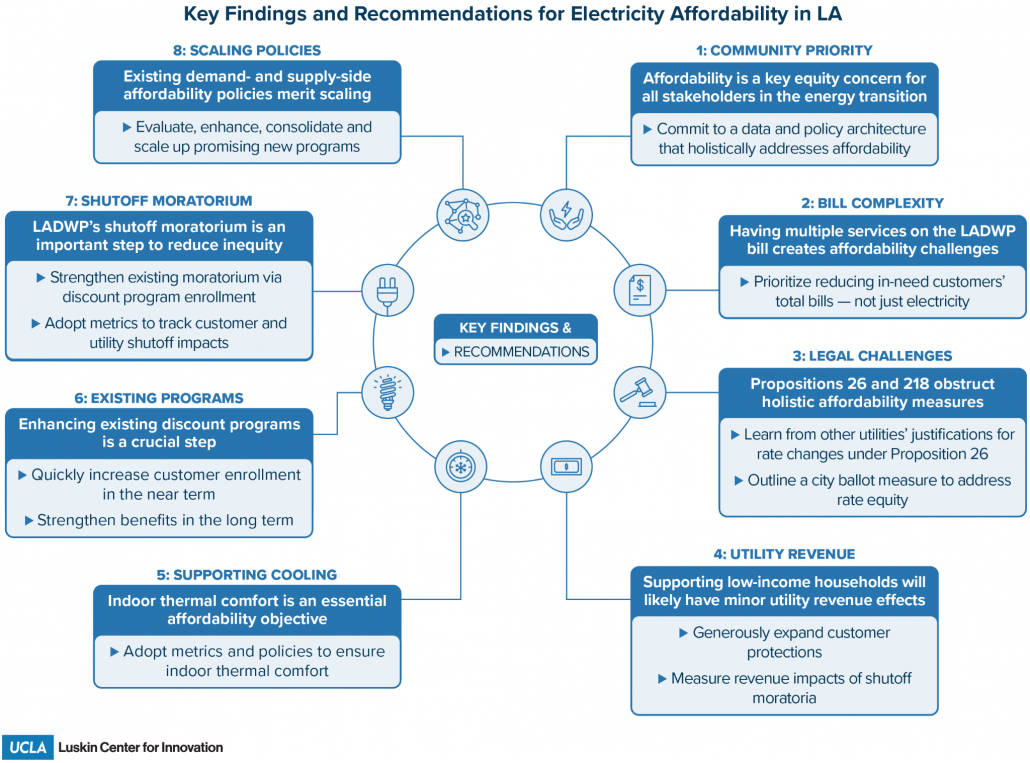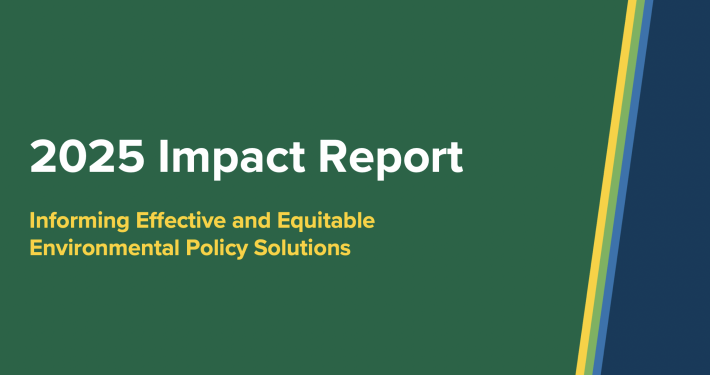November 16, 2023
UCLA guides LADWP as it pursues the first equity-focused clean energy transition
The Luskin Center for Innovation’s first-of-its-kind study includes recommendations on how to expand low-income customer protections
November 16, 2023
The Luskin Center for Innovation’s first-of-its-kind study includes recommendations on how to expand low-income customer protections
LADWP Receiving Station U, Tarzana. Courtesy of Steve Devol / Flickr
How can the Los Angeles Department of Water and Power (LADWP) ensure historically disadvantaged communities aren’t left behind in Los Angeles’ transition to 100% carbon-neutral electricity by 2035?
The public utility asked, and more than 20 UCLA faculty and researchers with expertise in engineering, environmental science, law, labor studies, public health, and public policy answered in a new report, LA100 Equity Strategies.
Luskin Center for Innovation researchers, in partnership with Rachel Sheinberg, wrote Chapter 13: Energy Affordability and Policy Solutions, providing specific recommendations for robust, long-term, structural solutions to LADWP’s customers’ ability to pay their bills.
By analyzing eight metrics and 11 policies, Luskin Center for Innovation researchers found that while LADWP has made significant strides to address affordability through its landmark shutoff moratorium, protections for low-income customers must be expanded. They assert that
No other major city or utility has fully analyzed how to equitably transition to a clean energy economy. Rather than perpetuating systemic inequities, we have an opportunity to transform utility approaches to avoid placing additional burdens on those who can least afford them.
The researchers recommend that LADWP take the following actions, among several others (see graphic below):
This report builds on the Luskin Center for Innovation’s ongoing research and engagement on utility affordability and energy equity more broadly at the state and local level. It complements the National Renewable Energy Laboratory’s findings on affordability-focused rate structure and on-bill financing (Chapter 5) as well as the UCLA Center for Neighborhood Knowledge’s analysis of affordability for small ethnic-owned businesses (Chapter 14).
This research was made possible through an existing agreement between LADWP and the UCLA Sustainable LA Grand Challenge.

Get our latest research in your inbox.
 The Luskin Center for Innovation welcomes new doctoral researchers
The Luskin Center for Innovation welcomes new doctoral researchers
Learn more about their interests and work.
 UCLA Luskin Center for Innovation 2025 Impact Report
UCLA Luskin Center for Innovation 2025 Impact Report
Informing effective and equitable environmental policy solutions.
 Urban wildfire: water system capacities and limitations
Urban wildfire: water system capacities and limitations
Researchers convene statewide experts to assess firefighting capacity, infrastructure gaps, and policy solutions.
 Harker School Staff Photographer / Wikimedia Commons
Harker School Staff Photographer / Wikimedia Commons 2023 Impact Report: Our New Era of Shaping Effective and Equitable Environmental...
2023 Impact Report: Our New Era of Shaping Effective and Equitable Environmental...